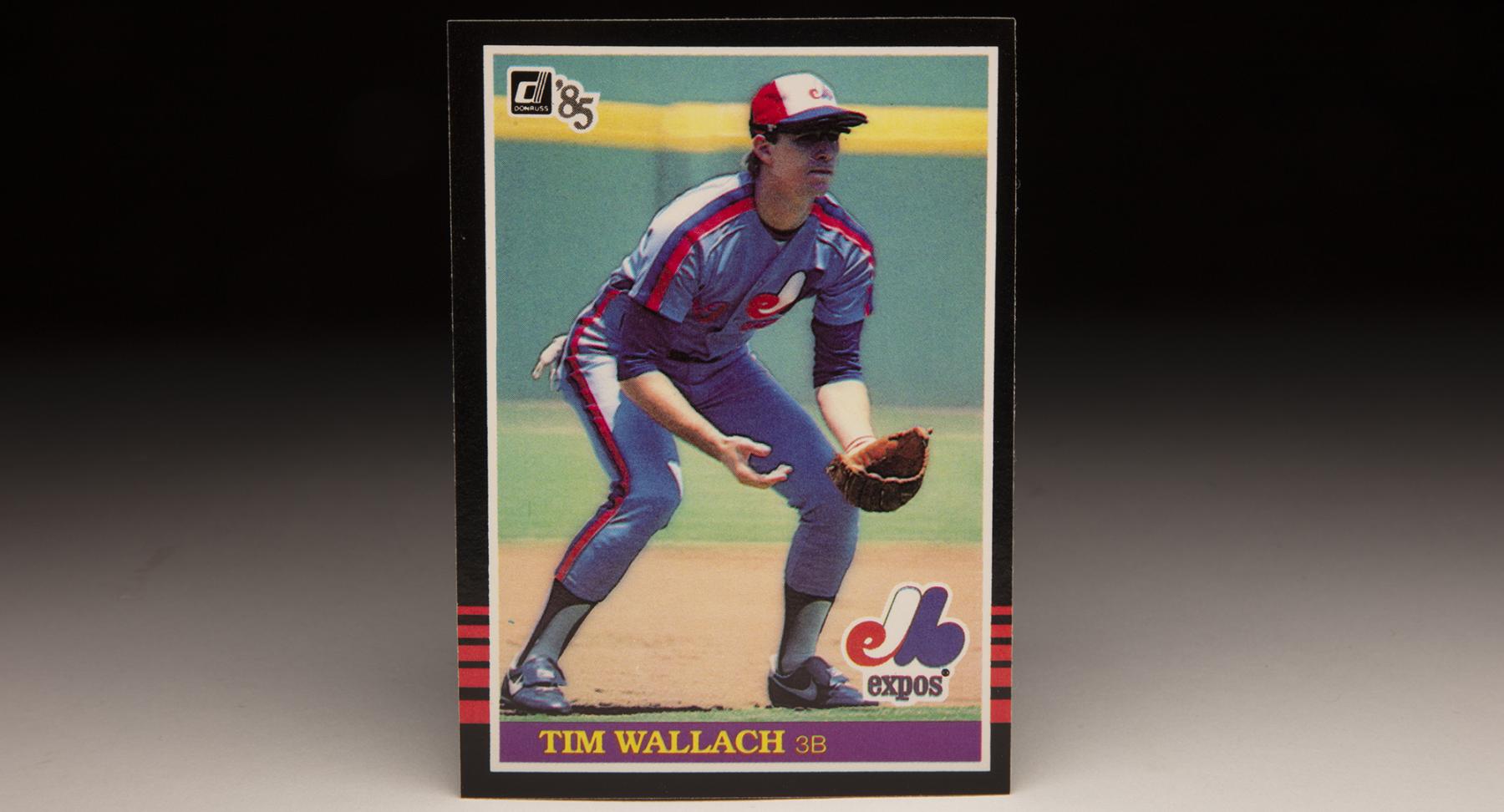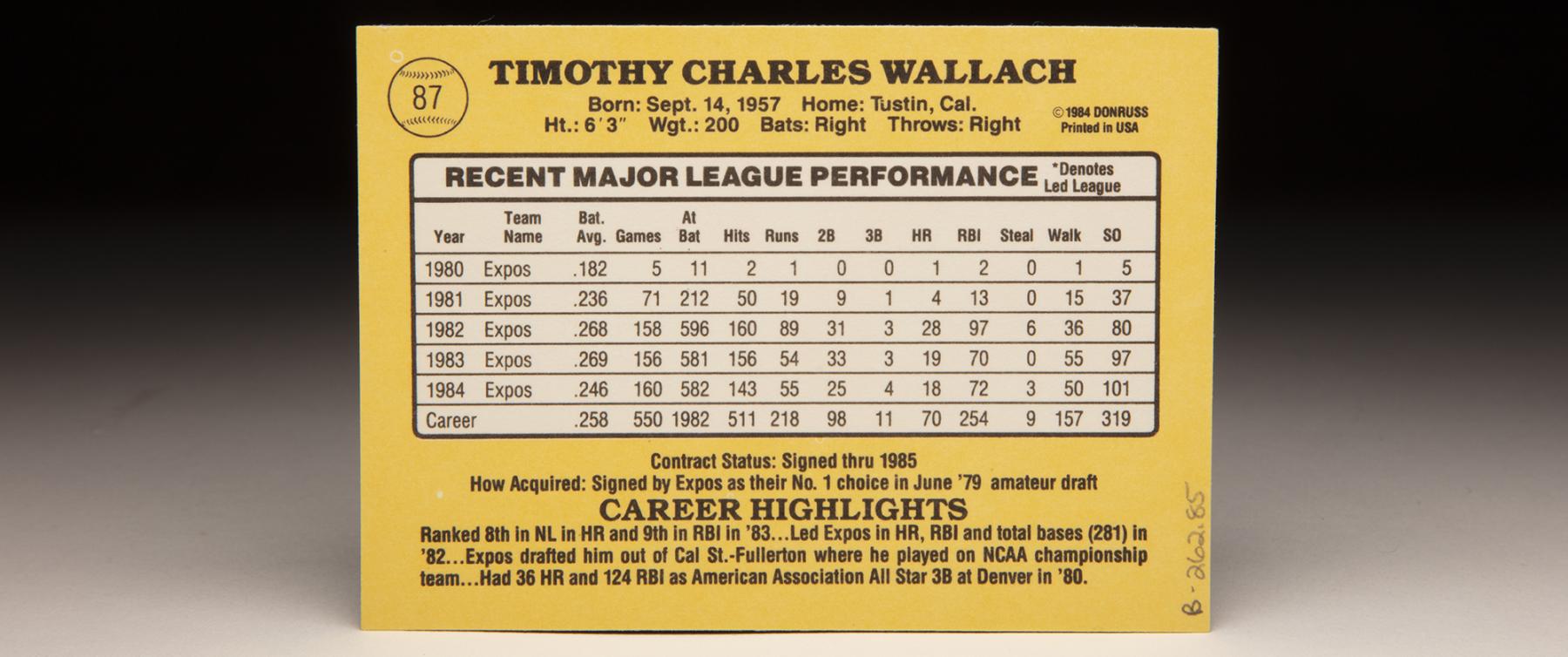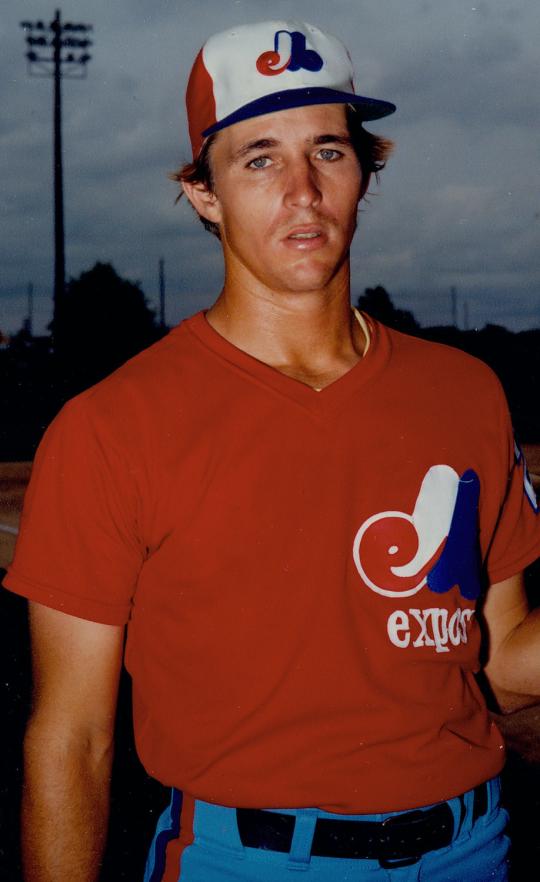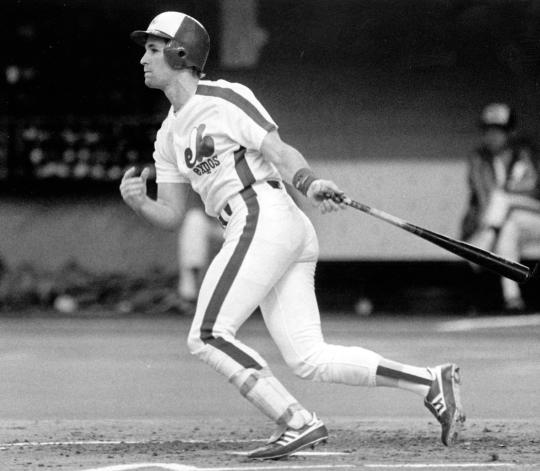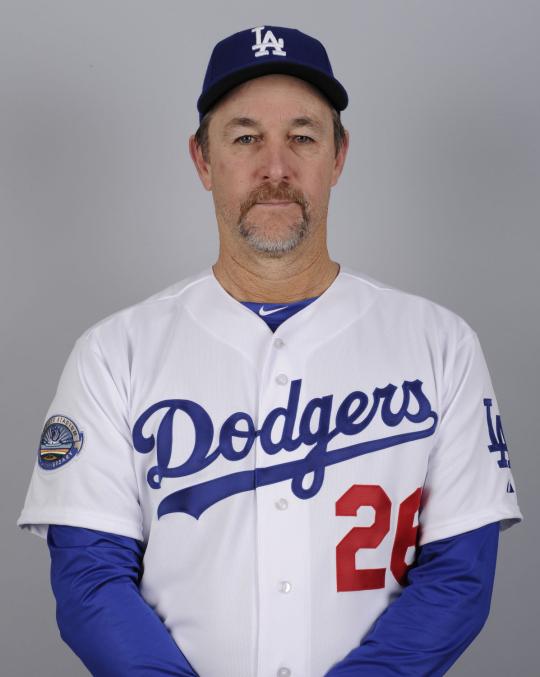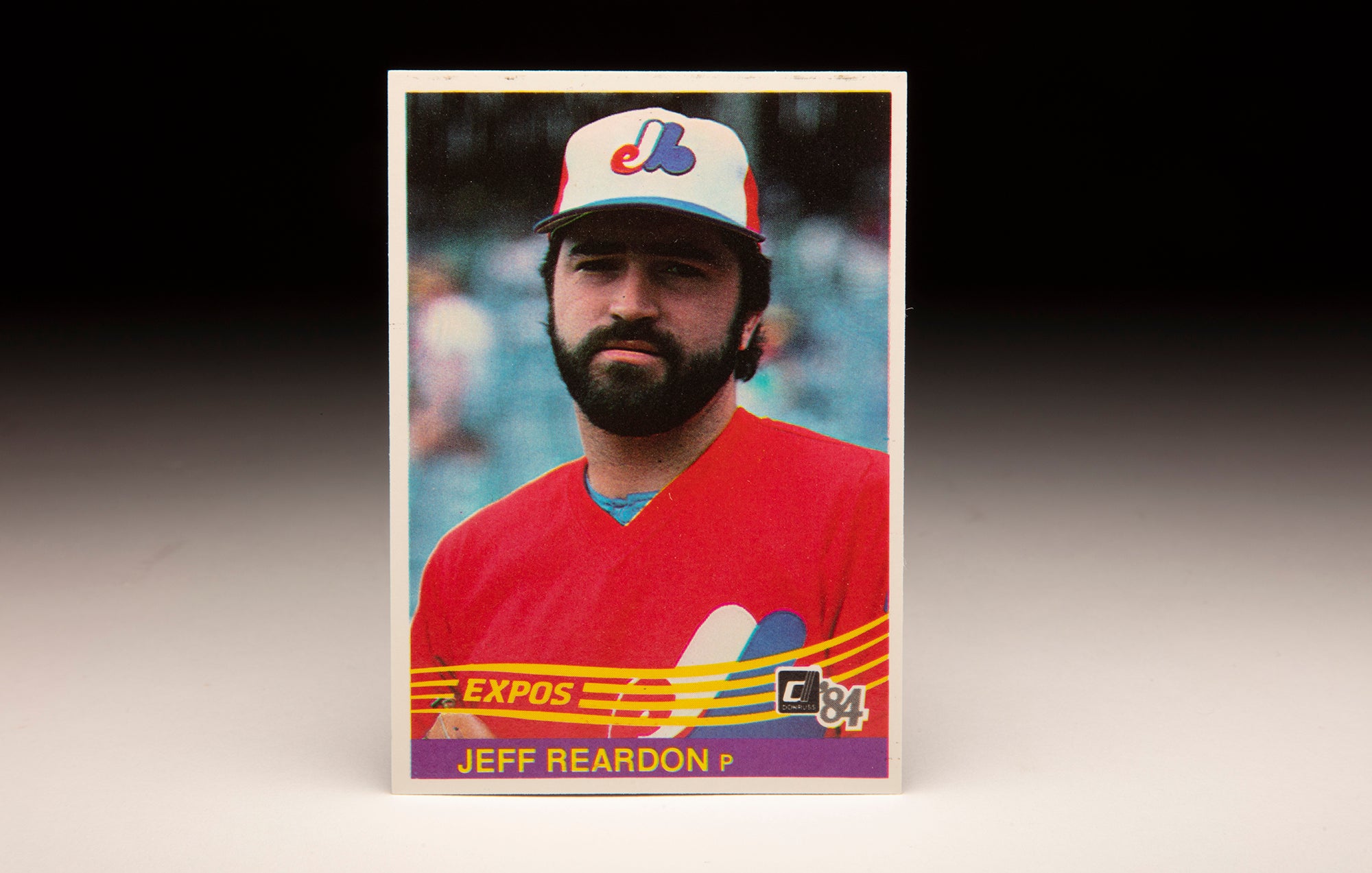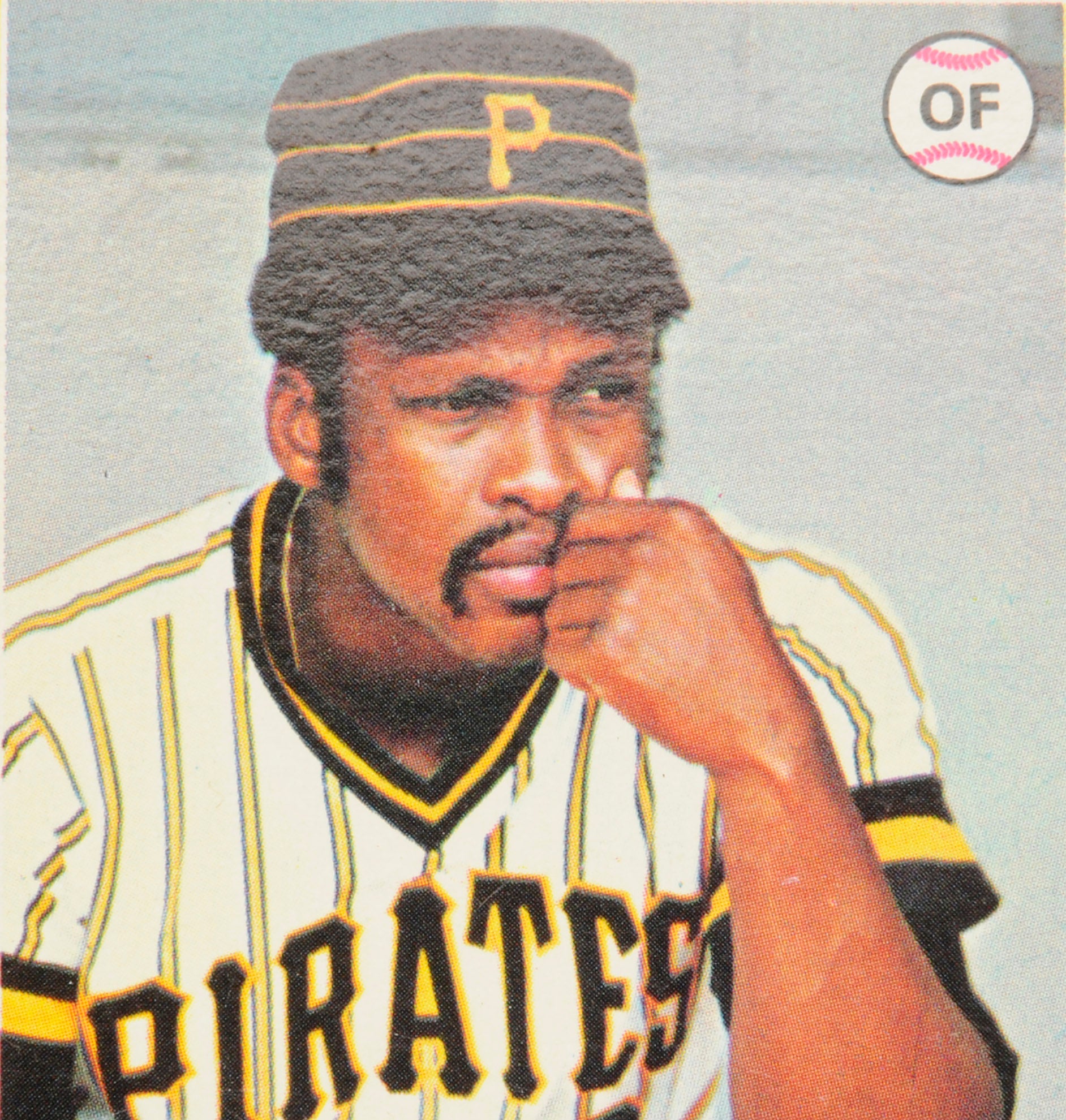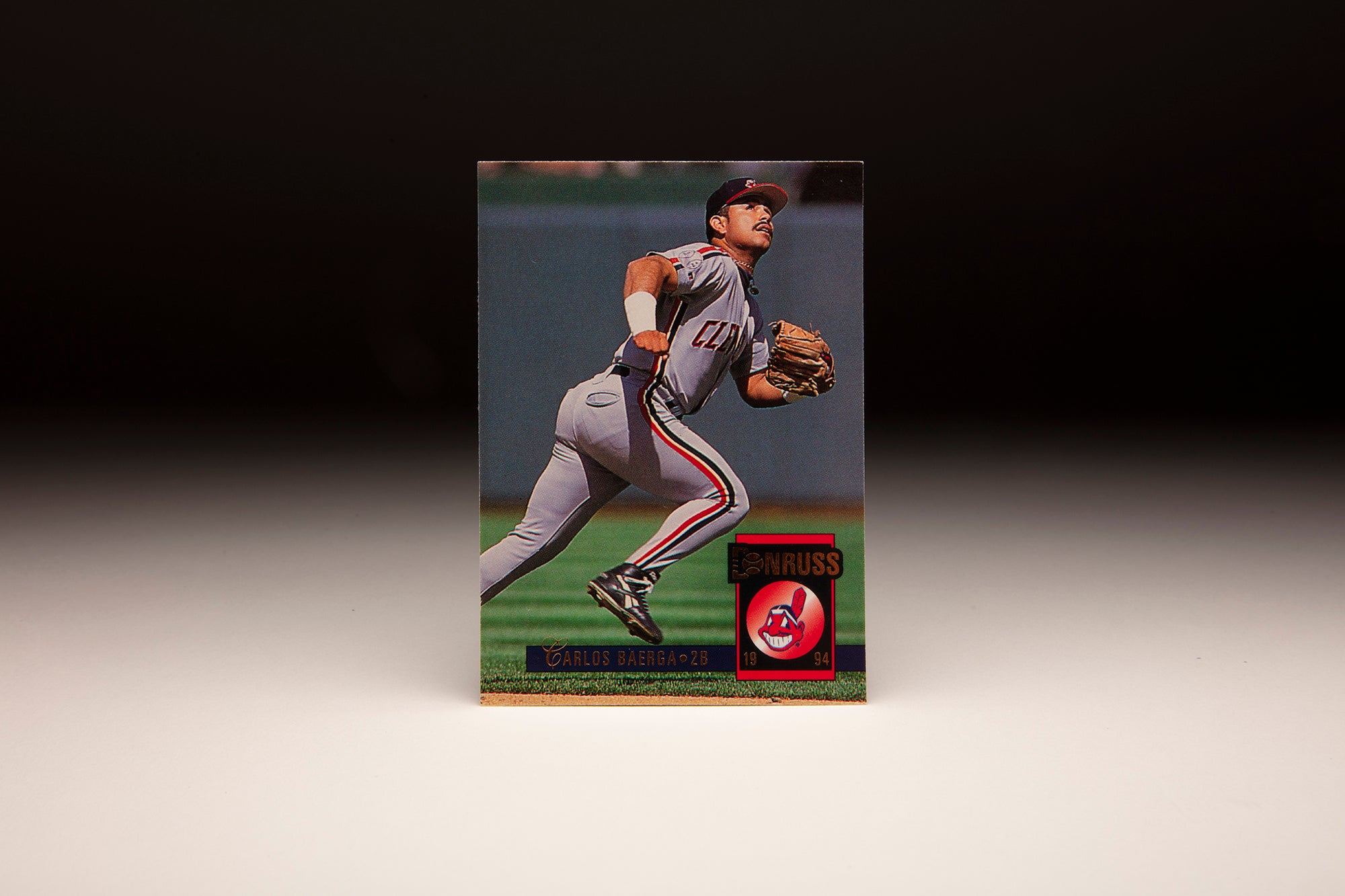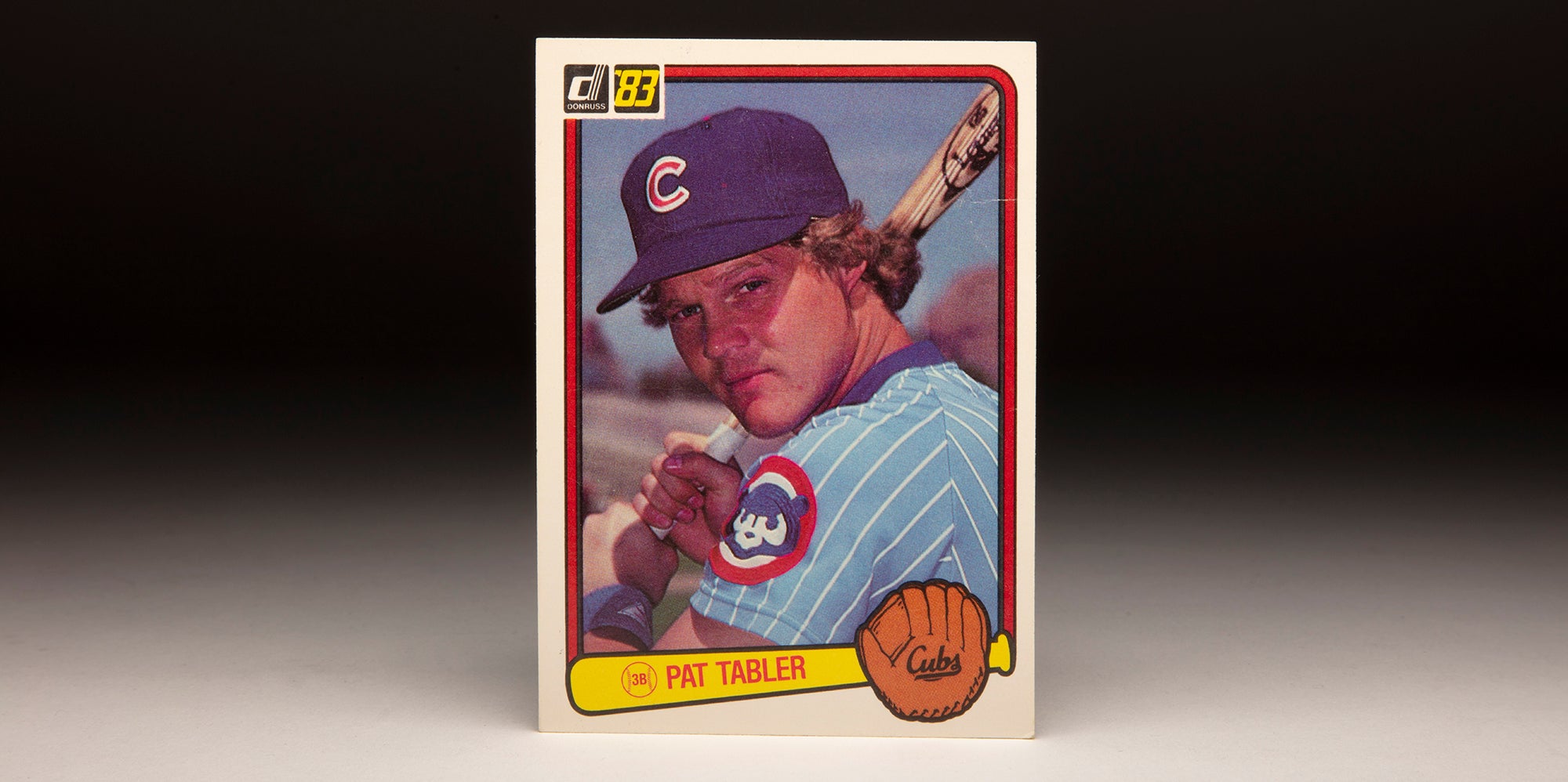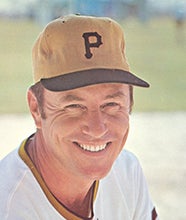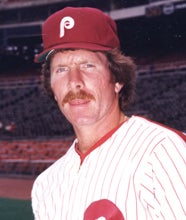- Home
- Our Stories
- #CardCorner: 1985 Donruss Tim Wallach
#CardCorner: 1985 Donruss Tim Wallach
For 36 seasons, the Montreal Expos fielded lineups that featured future Hall of Famers like Gary Carter, Andre Dawson and Tim Raines.
No one, however, played more games in an Expos uniform than Tim Wallach. And no one had more hits, doubles, total bases or RBI while representing the city of Montreal.
For a born-and-bred Californian, Wallach’s baseball legacy is forever tied to the Great White North.
Official Hall of Fame Merchandise
Hall of Fame Members receive 10% off and FREE standard shipping on all Hall of Fame online store purchases.
Wallach was born on Sept. 14, 1957, in Huntington Beach, Calif. He attended University High School in Irvine, Calif., but stood only 5-foot-5 as a sophomore and found little varsity opportunity in his two favorite sports: Baseball and basketball. But over the next two years, Wallach grew nine inches and earned the starting third baseman’s job for the Trojans.
Wallach went undrafted out of high school in June of 1975 and enrolled at Saddleback Junior College in Mission Viejo, Calif. He helped the Bobcats win the Mission Conference title as a freshman before becoming a Division I prospect as a sophomore.
“I saw mostly fastballs in high school,” Wallach told the Los Angeles Times in 1977. “I never saw a curve or a slider. In (Junior College) ball, with my open stance, I couldn’t reach the curve or slider.”
But working with former big leaguer Jim Brideweser, an assistant coach at Saddleback College, Wallach closed his stance and began driving the ball with authority. After setting school single-season records for home runs (nine), triples (six), hits (48), runs (30) and RBI (32) in 1977, Wallach enrolled at Cal State Fullerton, which was on its way to becoming a national power under head coach Augie Garrido.
Now a first baseman, Wallach batted .394 with 16 homers and 80 RBI in 1978 and was named the Southern California Baseball Association’s Most Valuable Player after leading the Titans to a 44-13 record. The Angels took Wallach in the eighth round of the 1978 MLB Draft, but Wallach returned to school – starring in the Alaska Baseball League over the summer (winning league MVP honors) before leading the Titans to the 1979 College World Series title.
In the championship game win over Arkansas, Wallach’s sixth-inning sacrifice fly plated the winning run in Cal State Fullerton’s 2-1 win. It was Wallach’s 102nd RBI of the season – tying an NCAA record set by Arizona State’s Chris Bando the year before – and made the Titans just the sixth team in College World Series history to win the title after losing the opening game in Omaha.
Wallach was named the College Player of the Year by the Sporting News.
Again eligible for the MLB Draft, Wallach was taken by the Expos with the 10th overall pick. He was immediately sent to Double-A Memphis, where he went 12-for-26 (.462) with two home runs in his first week with the Chicks. By the end of the season, Wallach was hitting .327, totaling 16 doubles, 18 homers and 51 RBI in 75 games – mostly at first base and DH.
In 1980, the Expos assigned Wallach to Triple-A Denver and began the process of converting him to third base. On a team loaded with future big league stars like Raines, Bill Gullickson and Charlie Lea – and future Japan Central League record-setting slugger Randy Bass – Wallach hit .281 with 36 homers and 124 RBI for a Bears team that went 92-44. He was called up to the big leagues in September and appeared in five games down the stretch as the Expos fell just short of the NL East title.
On Sept. 6, Wallach entered his first big league game as a defensive replacement in left field. After drawing a walk in his first at-bat, Wallach homered of the Giants’ Phil Nastu in his second plate appearance.
“He’s a clutch performer,” Expos manager Dick Williams told the Ottawa Citizen. “He was in high school, college and in the minors.”
Wallach played winter ball in the Dominican Republic following the season, then made the Expos Opening Day roster in 1981 as a utility player. In 71 games during that strike-shortened season, Wallach hit .236 with four homers and 13 RBI as the Expos advanced to the NLCS. In five postseason games that year – including a Game 1 start in the NLDS vs. the Phillies – Wallach was 1-for-5 with four walks.
On March 31, 1982, the Expos sent longtime third baseman Larry Parrish and prospect Dave Hostetler to the Rangers in exchange for Al Oliver – opening a regular lineup spot for Wallach. Expos manager Jim Fanning immediately said the Wallach would be his third baseman.
Now 24 and grown into his 6-foot-3, 220-pound frame, Wallach did not disappoint. In 158 games, he hit .268 with 89 runs scored, 31 doubles, 28 homers and 97 RBI. And though his 23 errors at third base ranked third in the NL, Wallach also led all National League third basemen with 132 putouts and finished fifth with 287 assists.
“I keep reading in the papers that my glove is suspect, so I’m going to make sure I earn the respect they give the complete ballplayer,” Wallach told the Gazette in Montreal in Spring Training of 1983. “I won’t be happy until I cut those 23 errors down to 10 or so.”
Wallach cut his errors to 19 in 1983 while hitting .269 with 19 homers and 70 RBI. But despite a lineup featuring future Hall of Famers Carter, Dawson and Raines – not to mention perennial All-Star Al Oliver and closer Jeff Reardon – the Expos finished a disappointing 82-80. After winning just 78 games in 1984 – during a season where Wallach hit .246 with 18 homers and 72 RBI – Montreal traded Carter to the Mets, beginning a slow rebuild that would gut the core of the team.
But the Expos showed that Wallach was definitely part of their future, signing him to a three-year, $2 million contract on Jan. 28, 1985 – one that also included option years from 1988 and 1989.
“When you talk about third basemen in the National League,” Expos general manager Murray Cook told the Ottawa Citizen, “there is Mike Schmidt, and then there is Tim Wallach.”
Wallach was not yet in Schmidt’s league as a fielder, but he had improved significantly after working with Pirates All-Star infielder Bill Mazeroski, who served as a Spring Training coach with the Expos in 1984. Wallach led all NL third basemen in assists (332), double plays (29) and putouts (162) that season.
“My range is better and I’m getting to more balls,” Wallach told the Palm Beach Post. “I’m really happy with my defense.”
Wallach was named to his first All-Star Game in 1984 then followed that up with another ASG selection in 1985 when he hit .260 with 22 homers and 81 RBI. He also led all MLB third basemen with 383 assists en route to his first Gold Glove Award, snapping a string of nine straight years where Schmidt had won the award.
Wallach began the 1986 with an injury when he suffered a broken left little toe late in Spring Training. A late-season slump then dropped his average to .233 to go along with 18 homers and 71 RBI. Schmidt, meanwhile, reclaimed the NL Gold Glove Award at third base.
Before the season even ended, Wallach was mentioned as a possible trade chip.
“I think we could trade some offense,” Expos manager Buck Rodgers told the Gazette. “Tim Wallach has probably got more market value than most. But it’s still too early to say what we’ll do.”
In the end, the Expos decided against dealing Wallach – who responded with the best season of his career in 1987, hitting .298 with 26 homers, 123 RBI and an MLB-best 42 doubles. He was named to his third All-Star Game, won his second Silver Slugger Award and finished fourth in the NL MVP voting as the Expos won 91 games. Fifty-six of his RBI came with two outs.
The Expos and Wallach, however, were unable to capitalize on their momentum in 1988. Montreal finished 81-81 and Wallach slumped at the plate, hitting .257 with 12 homers and 69 RBI. But his defense remained strong as he took home his second Gold Glove Award.
After a protracted negotiation in February of 1989 – when Wallach asked for the Expos to extend his deal or face the reality that he would leave via free agency after the season – Montreal signed Wallach to a two-year extension worth a reported $3.1 million.
Wallach again led the NL with 42 doubles in 1989 – matching his 1987 total – while hitting .277 with 13 homers and 77 RBI and earning another All-Star Game selection. Then in 1990, Wallach hit .296 with a career-best 185 hits, 21 homers and 98 RBI as the Expos stayed in contention for the NL East title all season before finishing in third place at 85-77.
Wallach was named to his fifth All-Star Game, won his third-and-final Gold Glove Award and finished 10th in the NL MVP voting.
“Tim’s a blue-collar guy who does his job and doesn’t look for the publicity,” Rodgers told the Palm Beach Post. “He doesn’t like to negotiate through the papers and he’s not a complainer.”
Wallach entered the 1991 season having already set a Montreal standard for games played and had never appeared on the disabled list. He was healthy again in ’91, and he led all NL third basemen with a .968 fielding percentage. But his batting average fell to .225 as he hit 13 homers and drove in 71 runs.
Following the season, the Expos traded first baseman Andrés Galarraga to the Cardinals. Manager Tom Runnells, who replaced Rodgers during the 1991 campaign, then decided that Wallach would move to first base and Bret Barberie would take over at third.
Wallach – and most of the Montreal players, fans and media – were not enthusiastic about the move. Wallach immediately asked to be traded.
But Runnells was fired 37 games into the 1992 season and replaced with Felipe Alou. And Alou’s first move was to put Wallach back at third base.
“I feel like a bit of a scapegoat,” Barberie told the Gazette. “(Wallach) is back there, and that’s what the fans want. It’s what the media wants, too.
“It’s Tim’s job again, that’s obvious. But then, I feel like it’s been his all long.”
Wallach, however, again struggled at the plate. Appearing in 150 games – the 10th time he reached that total in the last 11 seasons – Wallach hit .223 with nine homers and 59 RBI.
On Dec. 24, 1992, the Expos traded Wallach to the Dodgers in exchange for minor leaguer Tim Barker. The Expos agreed to pay $1 million of Wallach’s $3.2 million salary in 1993, and Wallach facilitated the deal by voiding a vesting option that called for him to potentially make $3.5 million in 1995.
“We (his wife Lori and children Matthew, Brett and Chad) are coming home,” Wallach told the Gazette. “This is like a Christmas present.”
Wallach struggled again in 1993, hitting .222 – his third straight season under .230 – with 12 homers and 62 RBI. He was hit by a pitch by Montreal’s Ken Hill on July 17, cracking a rib and sending him to the disabled list for the first time in his career.
But in 1994, Wallach rediscovered his power stroke – hitting 23 home runs and driving in 78 runs in 113 games before the strike wiped out the rest of the year. His .502 slugging percentage was his best since 1987 and the second-best of his career, and the Dodgers brought Wallach back with a new contract calling for a $1.5 million salary and an option year for 1996.
In 1995, however, Wallach was hampered by back and knee injuries and hit .266 with nine homers and 38 RBI in 97 games. The Dodgers declined his contract option, and Wallach moved across town to play for the Angels. But after hitting .237 in 57 games, the Angeles released Wallach – and he quickly returned to the Dodgers for the rest of the season.
After finishing the year with a .233 batting average, 12 homers and 42 RBI over 102 games with both teams, Wallach announced his retirement as a player on Oct. 12. But he did not stay away from the game for long.
Wallach accepted a job as the hitting coach of the Dodgers’ Class A affiliate in San Bernadino on July 25, 1997. By 2004, Wallach had made his way back to the big leagues as the Dodgers hitting coach. He remained in that position through 2005, then returned to the minor leagues – managing Triple-A Albuquerque in 2009 and 2010 before returning to the Dodgers as third base coach from 2011-15.
When Dodgers manager Don Mattingly signed on with the Marlins in 2016, Wallach went with him – serving as the team’s bench coach through 2019.
Wallach’s three sons all played pro baseball, with Chad making to the big leagues with the Reds in 2017 and later playing with the Marlins.
Wallach retired with a .257 batting average, 432 doubles, 260 homers and 1,125 RBI – earning Expos Player of the Year honors three times from the Montreal chapter of the Baseball Writers’ Association of America.
“The three Gold Gloves were great because not many people thought I could do it,” Wallach told the Gazette about his career. “But making the playoffs (in 1981), the chance for the World Series, that’s what it is all about. That’s the only reason you keep playing.”
Craig Muder is the director of communications for the National Baseball Hall of Fame and Museum

